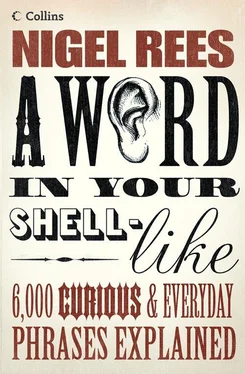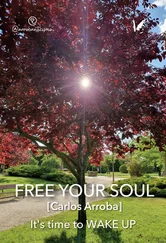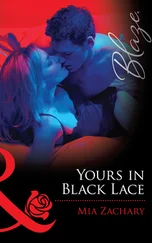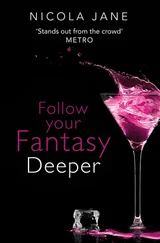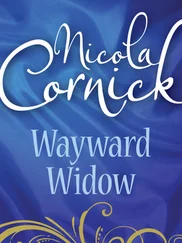almost a gentlemanBill matter (i.e. the descriptive line that appeared on posters) of the British music-hall comedian Billy Bennett (1887–1942). John Osborne took it as the title of his second volume of memoirs (1991). Compare Daisy Ashford, The Young Visiters , Chap. 1 (1919): ‘I am not quite a gentleman but you would hardly notice it but can’t be helped anyhow.’
along came a spiderThe title of a cop film (US 2001) starring Morgan Freeman is taken from the nursery rhyme ‘Little Miss Muffet’, known since 1805 and containing the lines (properly), ‘There came a big spider / Who sat down beside her / And frightened Miss Muffet away.’ ‘Along came a spider’ is the more usual American version, however. People like to think that Miss Muffet was Patience, the daughter of Dr Thomas Muffet, an entomologist who died in 1604. If he had been an arachnologist, that would have been even neater.
alteredSee CASE IS.
altered statesWhere drugs take you to. Altered States is the title of a novel (1979; film US 1980) by Paddy Chayevsky (screen credit as ‘Sidney Aaron’). This is a sci-fi thriller about genetic experimentation or, as one of the film guides puts it, about a ‘psychophysiologist who hallucinates himself back into primitive states of human evolution, in which guise he emerges to kill’. Might there be a connection with what Dr Albert Hofmann observed of his discovery, the psychedelic drug LSD? He noted in his diary for 1943: ‘An intense stimulation of the imagination and an altered state of awareness of the world. ’
although I says it as shouldn’tPhrase of excuse before uttering an indiscretion. Since the 17th century.
always leave them wanting moreProverbial expression in the world of entertainment. From The Independent (8 May 1996): ‘Franz Welser-Möst will doubtless have seen the irony in stepping down as music director of the London Philharmonic with a Requiem…But there is an old theatrical adage that says “Always leave them wanting more”. And – surprise, surprise – I do believe he has.’
always merry and brightThe British comedian Alfred Lester (1872–1925) is principally associated with this phrase, although it crops up in all sorts of other places. As ‘Peter Doody’, a lugubrious jockey in the Lionel Monckton/Howard Talbot/Arthur Wimperis musical comedy The Arcadians (1909), he had it as his motto in a song, ‘My Motter’. Punch quoted the phrase on 26 October 1910. Somerset Maugham in a letter to a friend (1915) wrote: ‘I am back on a fortnight’s leave, very merry and bright, but frantically busy – I wish it were all over.’ An edition of The Magnet from 1920 carried an ad for Merry and Bright – a comic paper. P. G. Wodehouse used the phrase in The Indiscretions of Archie (1921). Larry Grayson suggested that it was used as the billing for Billy Danvers (1884–1964), the British variety entertainer, and so it was, but he may also have used ‘Cheeky, Cheery and Chubby’.
always partridgeSee SEMPER PERDRIX.
always steer towards the gunfireTackle matters head on. Originally from naval warfare. Or is it ‘head towards’?
always true to you in my fashionThe song with this title by Cole Porter from Kiss Me Kate (1948) echoes, consciously or unconsciously, the line ‘I have been faithful to thee, Cynara! in my fashion’ from the poem ‘ Non Sum Qualis Eram ’ (1896) by Ernest Dowson.
always verify your referencesIn 1949 Winston Churchill gave an inaccurate account to the House of Commons of when he had first heard the words ‘unconditional surrender’ from President Roosevelt. Subsequently, in his The Second World War , Vol. 4 (1951), Churchill wrote: ‘It was only when I got home and searched my archives that I found the facts as they have been set out here. I am reminded of the professor who in his declining hours was asked by his devoted pupils for his final counsel. He replied, “Verify your quotations”.’ Well, not exactly a ‘professor’, and not exactly his dying words, and not ‘quotations’ either. Dr Martin Routh (1755–1854) was President of Magdalen College, Oxford, for sixty-three years. Of the many stories told about Routh, Churchill was groping towards the one where he was asked what precept could serve as a rule of life to an aspiring young man. Said Routh: ‘You will find it a very good practice always to verify your references, Sir! ’ The story was first recorded in this form in July 1878, as Churchill and his amanuenses might themselves have verified. In 1847, Routh gave the advice to John Burgon, later a noted Dean of Chichester, who ascribed it to Routh in an article in the Quarterly Review (and subsequently in his Lives of Twelve Good Men , 1888 edn). Perhaps Churchill was recalling instead the Earl of Rosebery’s version, given in a speech on 23 November 1897: ‘Another confirmation of the advice given by one aged sage to somebody who sought his guidance in life, namely, “Always wind up your watch and verify your quotations”.’
amaze me!See ASTONISH ME.
amazing graceMost people are familiar with the hymn ‘Amazing Grace’ from the great popular success it had when sung and recorded by Judy Collins in the early 1970s. The words of the hymn were written in the 17th century by John Newton (1725–1807), a reformed slavetrafficker. He (together with the poet William Cowper) wrote the Olney Hymnbook of 1779, and this is but one example from that work. The slightly complicated thing is that the tune to which ‘Amazing Grace’ now gets sung is a traditional tune – it is an old American one, though some say that it was an anonymous Scottish tune before this.
amber nectarNectar was the (sweet) drink of the gods in classical mythology. ‘Amber fluid’ and ‘amber liquid’ are both Australianisms acknowledged by the Macquarie Dictionary (1981) for beer (particularly amber-coloured lager). Put all this together and you have the term ‘amber nectar’ used by Paul Hogan in 1980s’ TV commercials in Britain for Foster’s. Earlier examples: in 1713, the London and Country Brewer was referring to ‘the amber-coloured Malt’; ‘Barrel of amber’ and ‘amber fluid’ are terms used about beer in Chicago Gang Wars in Pictures, X Marks the Spot (1930); ‘Amber-coloured fluid’ was a term for cocktails used in the novels of the British-born writer E. Phillips Oppenheim (1866–1946).
Amen Corner(1) A place near St Paul’s Cathedral, London, where monks would conclude saying the Pater Noster as they processed on Corpus Christi Day. Hence the other place names: Paternoster Row, Ave Maria Lane, Creed Lane.
(2) (in US use by 1860) The name given to the part of a church or meeting house where people sat who used to assist the preacher by calling out the responses, especially ‘Amen’.
(3) The name of a British pop group of the late 1960s.
America can’t stand pat‘To stand pat’, meaning ‘to keep a fixed position or belief, to stand fast’, may have originated in the game of poker, in which you can decline to exchange the cards you are dealt. A ‘pat hand’ is one that is exactly suited to your purpose. In the 1960 US presidential election, John F. Kennedy pointed to the old slogan ‘Stand pat with McKinley’ as an example of Republican reaction. Richard Nixon countered with ‘America can’t stand pat’ – until it was politely pointed out to him that he was married to a woman with that name.
Читать дальше
